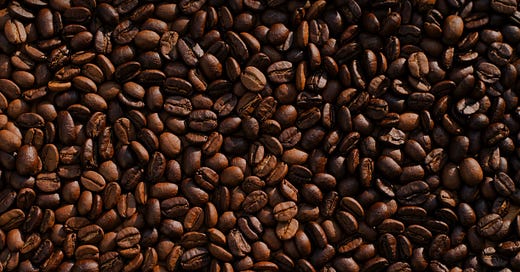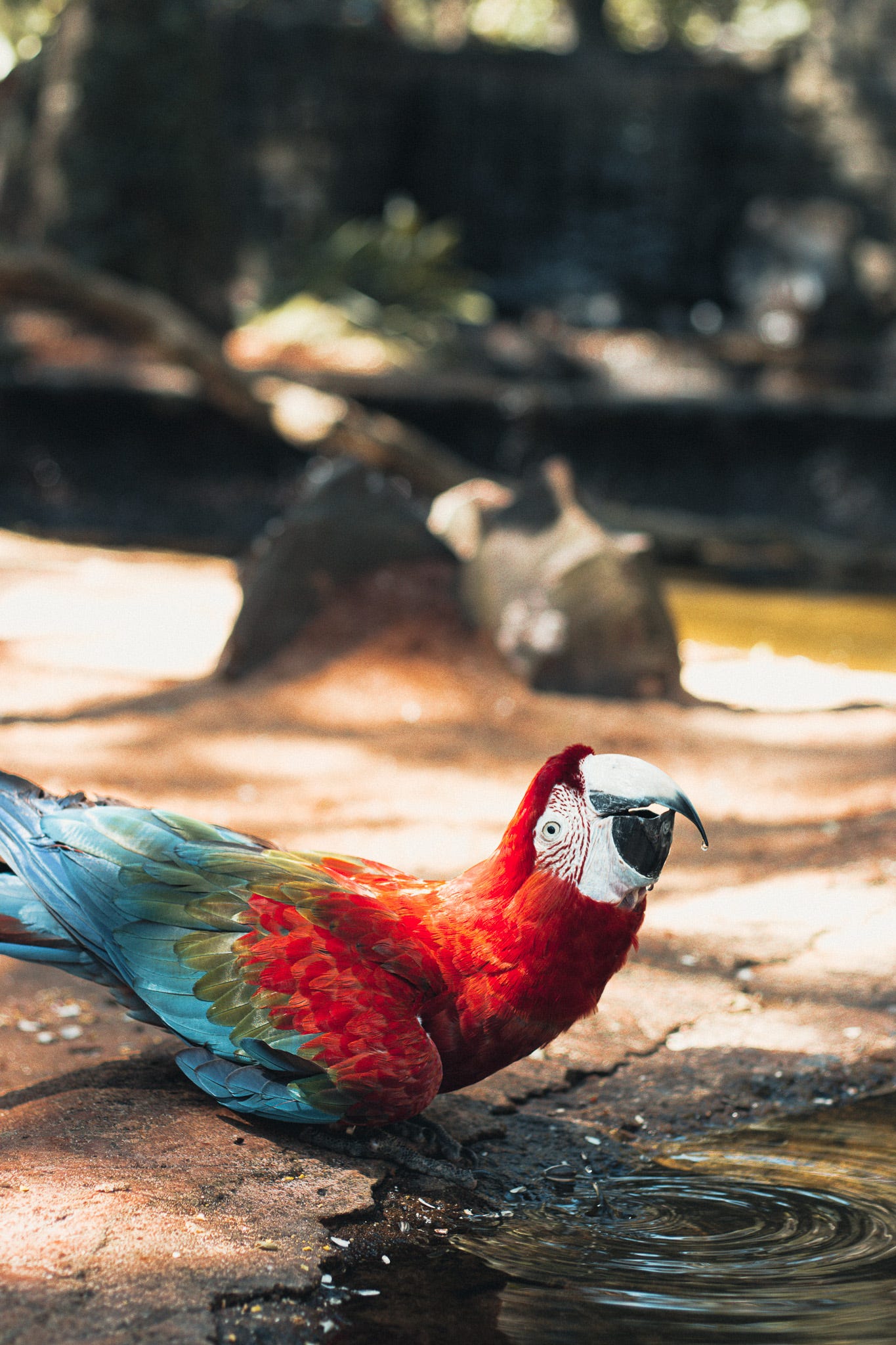Hi there readers!
Today’s issue is a little shorter but that doesn’t mean it won’t provide a piece of impactful and valuable information.
I was taking a look at the analytics of the newsletter and I found out that 57% of the audience is in Brazil and 43% is in the United States.
It is very interesting to think that two nations find each other among the people reading my content. But there is one particular thing that is 100% common with both countries on this exact day.
March 8th is International Women's Day
A global day to celebrate the social, economic, cultural, and political achievements of women.
Show some appreciation to the women in your life. They deserve it!
You are now informed.
(and I might have just saved your skin)
(like a good agent)
5. Caffeine Surplus
Rarity on Demand
Regardless if you are a tea, nicotine, pizza, sugar, astrology, art, neuroscience, Netflix, aromatherapy, maritime, conspiracies, HBO, music, or coffee person, you have one thing in common with every single human being out there.
You come from nature.
As does coffee.
Coffee is, in fact, such a valuable raw ingredient (due to not only the eccentric taste but also the energetic properties of caffeine), that between the 18th and 20th centuries, it was a crucial element to Brazil's economy and society, contributing to the country's economic growth, modernization, and political development. By the 1850s it was responsible for almost half of Brazil's exports. There were even “Coffee Barons”. Can you imagine that?
Coffee had such a powerful economic impact not only because of its properties but because it was a novelty. A “specialty commodity”. Coffee was rare and expensive and because of that had a lot of value and demand.
When something is rare, or unique, it carries an extremely high trade value, because it is hard to find. The spice trade between Europe and Asia in the Middle Ages even led to the Crusades and other conflicts.
“What do you mean by - an increase of 100% in the price - of my cinnamon? This is a declaration of war!”
*Sends thousands of knights toward war due to a disagreement that started with… cinnamon.
Of course, this wasn’t the only reason for geopolitical conflicts back then, but I’m trying to prove a point.
Because what was rare, expensive, and hard to find today (a novelty), is usually common and cheap in the future (a commodity).
How hard is it for you to find coffee? Not necessarily a good and organic coffee, but the actual ingredient.
It’s everywhere.
I will leave you with this question: What is a novelty in 2023?
Dune (1965) - Frank Herbert
Have you ever heard about Dune?
How about Star Wars?
Well, Dune is a Star Wars for adults.
Dune is a 1965 epic science fiction novel by American author Frank Herbert
“He who controls the spice controls the universe.”
- Frank Herbert
In Dune, humanity has split into different societies and planets while they continuously go to war because of a rare spice called Melange that unlocks prescience. (As in the capacity of knowing something before it takes place; foreknowledge.)
When a raw ingredient is scarce and aggregates tremendous value, we call it a novelty because it’s expensive, but when we start to mass produce that same raw ingredient, it becomes a commodity because it’s not scarce anymore.
5.1 An Addiction to Coffee
It is either a cup of coffee or a day of headache.
I’m not the biggest coffee person out there but let’s say I wake up one day with a massive wish for drinking coffee and I’m willing to spend any amount of money for that one sip that will save my life. I need to find coffee immediately! COFFEE!
Hey, are you drinking coffee right now?
I want it.
I will make you an offer for it.
I will give you $10 for that cup. Take it or leave it.
It doesn’t matter if it’s just 8oz of volume, if it is just a simple espresso, or if you have a huge and warm surplus of it waiting for you in the coffee machine some meters away. I need it now!
You like doing business, so before accepting you do a quick math and evaluate this trading opportunity.
You realize that this cup of coffee in your hands costs you $0.20 USD to make. So if someone is willing to buy it for $10.00…
It means the offer is 50x the amount you spent to make that cup.
Let’s say you accepted even though you didn’t understand why would someone pay that much for an 8oz cup of coffee.
Something that cost you 20 cents and that can be found everywhere because it is a commodity.
Well, here’s the catch.
There are people paying $3, $5, $10 for 8oz of coffee around the world as we speak. The exact same common raw ingredient we have been talking about all along.
How so?
Well, see this coffee you just sold me?
I will put a brand on the cup and sell it for $20. I will even add a slogan to it.
“It's more than coffee”
You might say that this is absurd, but that was actually Starbucks’ slogan.
And people are spending their money on coffee that costs 50x times its actual value every day.
Because they think they are buying a novelty when they are actually buying a commodity.
When in reality, they are buying neither of them.
They are buying a story, a narrative, a brand.
“It's more than coffee”
This slogan invokes the mind of consumers, it makes people think: “Well, I had coffee before and I love it, what exactly is beyond coffee? If it is available I have to try it.”
5.2 The Coffee Machine
A Factory of Ideas
*takes a sip of coffee.
So now we recognize that we have commodities all around us. There is only one planet earth, and this planet has a limited capacity for raw ingredients that as a society, we explore and harvest every day.
Life is comfortable in 2023. A cup of coffee was only available for Barons and Dukes in the past but now it is a product accessible to everyone.
There is a surplus of everything and that makes things common and cheap.
But even common things can have a lot of value if we wrap them with an aesthetic brand. Branding turns commodities into novelties.
Think about a bottle of Coke and a bottle of Pepsi. They have essentially the exact same raw ingredients: Water and Sugar. Both are wrapped in a plastic bottle. The only difference is the label, name, symbols, and colors. The story they tell.
Think about Uber and Lyft. They essentially offer the same service: moving from point A to point B. The difference is again in the story, in the user experience (UX) they provide to their clients.
Every product and service offers the same thing. Some are better in quality than others, but it is always the same thing in its most deep essence. Some are just able to wrap it in a better story.
But where do stories come from?
Well, from the coffee machines of ideas.
Creative professionals who are able to make your product or service feels and look unique. Through design. Through aesthetics. Through Creativity.
And that is the true novelty nowadays.
Ideas.
Why are ideas and creativity so valuable right now?
Because we are on the verge of a revolution where AI and Language Models are starting to shine and automate processes and technologies faster than ever.
I literally used ChatGPT to calculate the price of 8oz of coffee up there, did you miss the link?
ChatGPT can make an infinite amount of logical connections with the information it has available. In split seconds.
But it can’t make rational connections because it isn’t human and it doesn’t have feelings. That is also why it can’t perceive aesthetics. It is the difference between vertical thinking and lateral thinking. (I will approach this subject in a future issue.)
Beauty is a concept that machines will never be programmed to understand.
So are we going to treat creativity as a commodity or as the one thing that AI won't be able to replicate in the near future?
If you agree that it is a novelty then you should know that I have been providing you with it.
Preparing you for an AI-Native economy.
Because creativity comes from having new references and exercising the gaze at the moon.
Knowing the right tools to use at the right moment.
Knowing the right strategy for the right problem.
Having agency to act.
5.3 Pandora’s Box
A Fresh Digest on my latest discoveries and some other things.
4.3.1 In the Lenses of Thi
4.3.2 Chords 🎶
Unsubscribe
I noticed that the user experience of unsubscribing can be a little confusing here on Substack. I do want to share my ideas, but I don’t really want to be a bother if you don’t like the content. Below are some instructions on how to unsubscribe from the newsletter.
Website
About the Author
Thiago Patriota
Made in 1996. Born & Raised Brazillian. Bachelor’s Degree in Advertising and Communication. Adept to autodidactism. Curious Soul. Published Author. Founder of Sentient.
That’s me in a nutshell but you can learn more about Agency and myself on the About page!
















I really felt the Dune connection...
awesome stuff, keep it coming 🙌